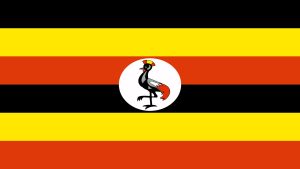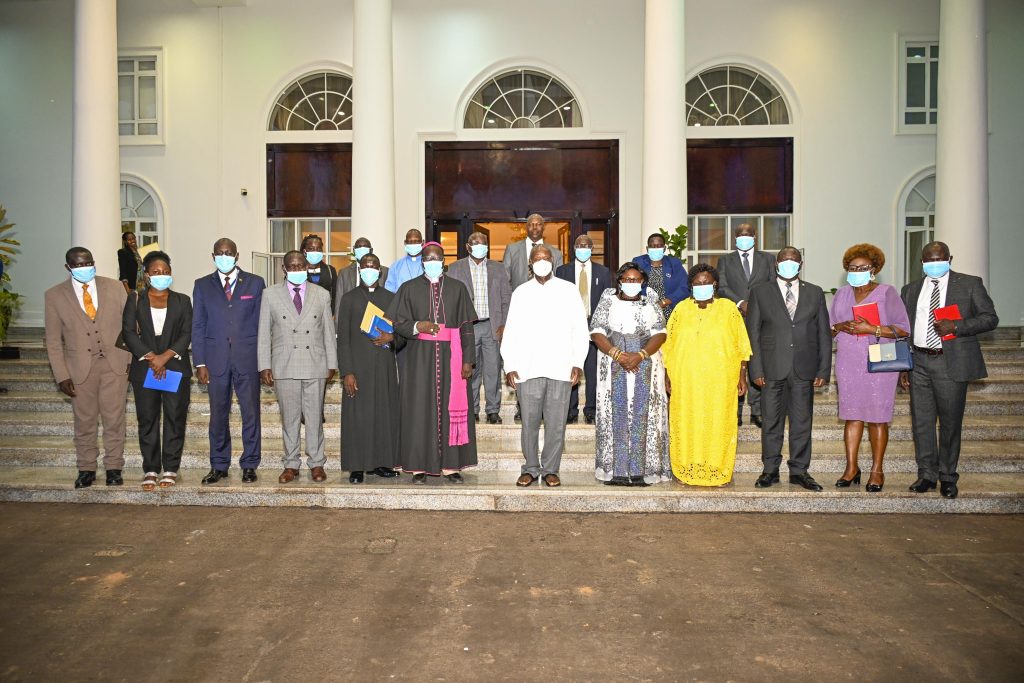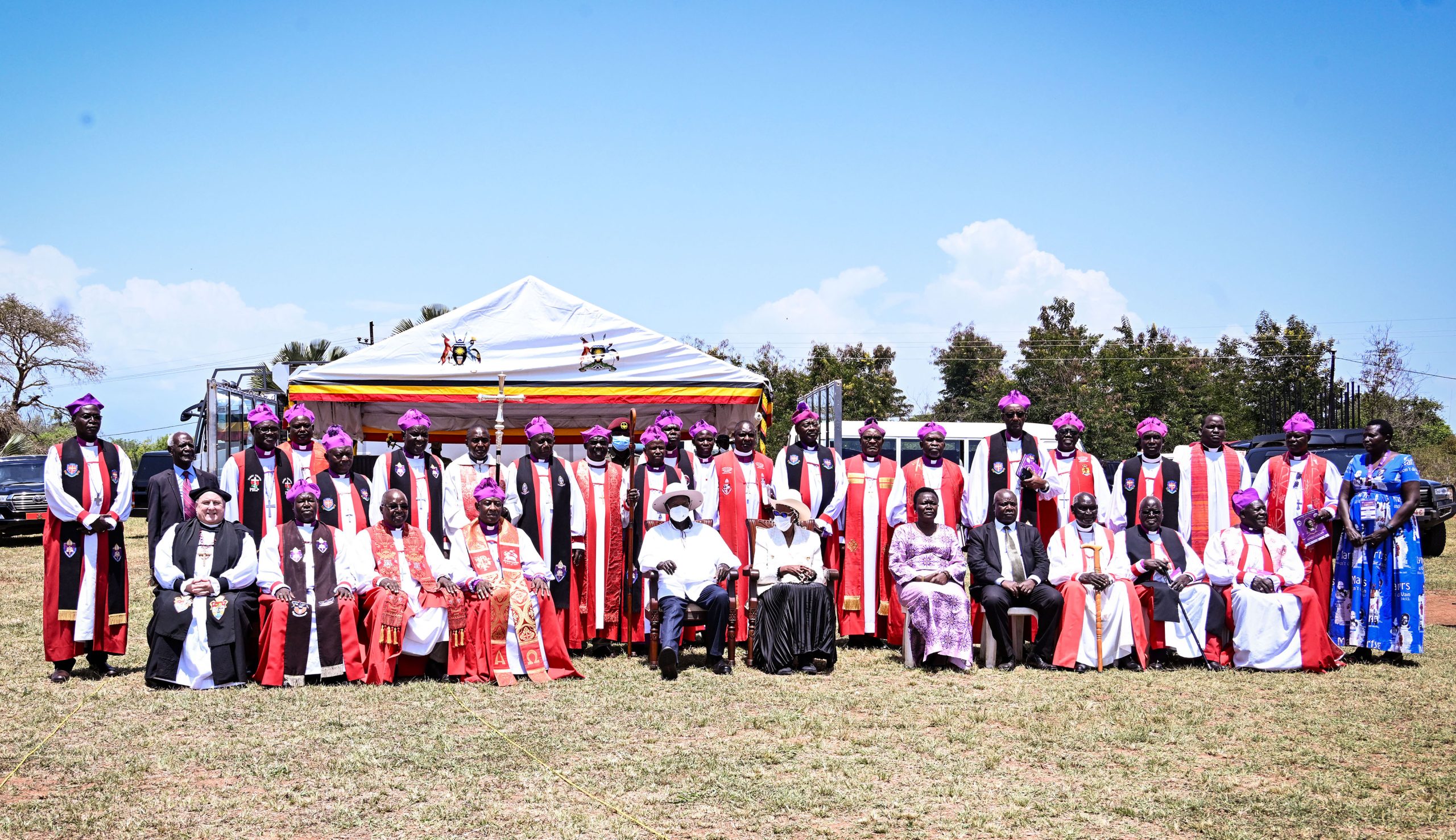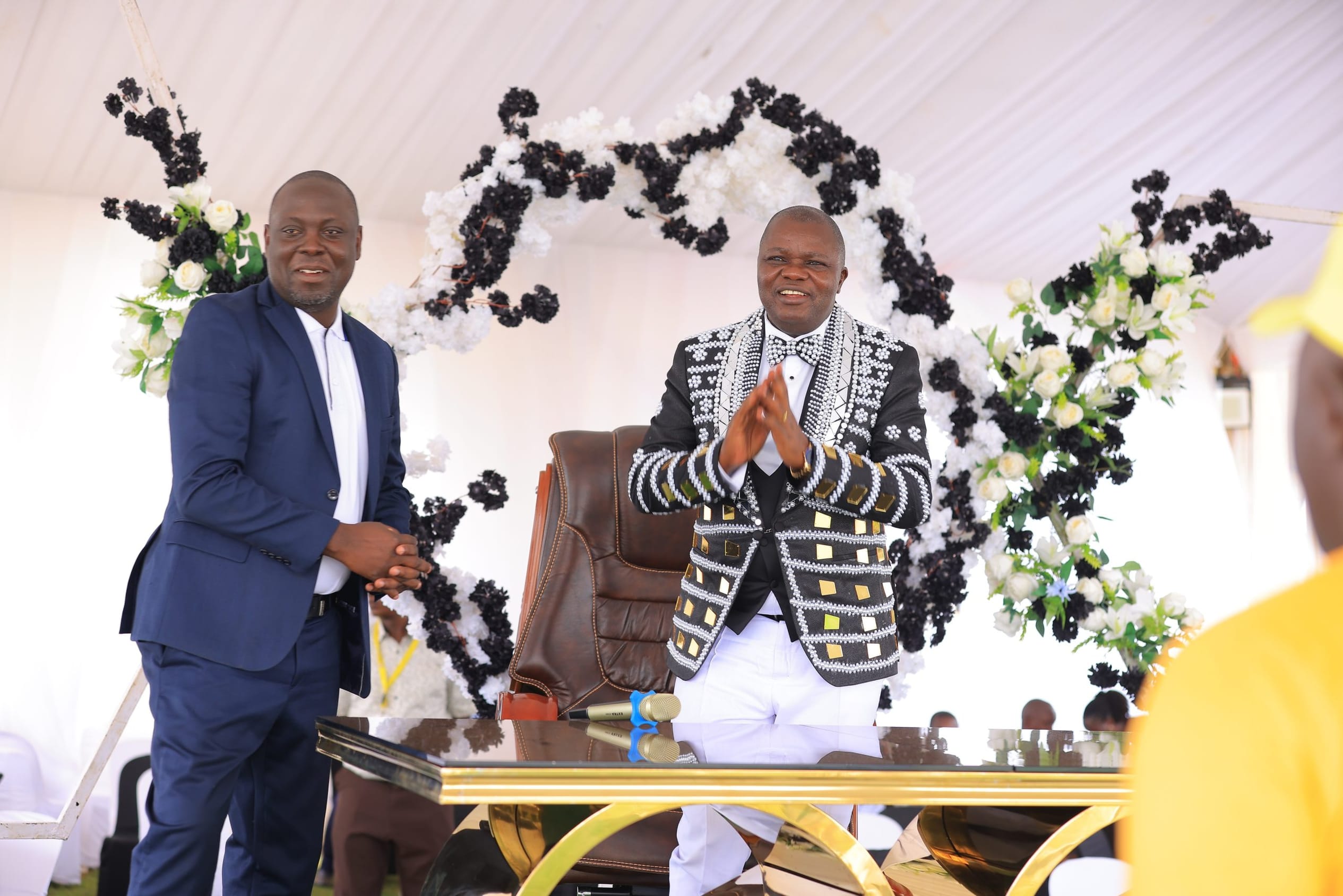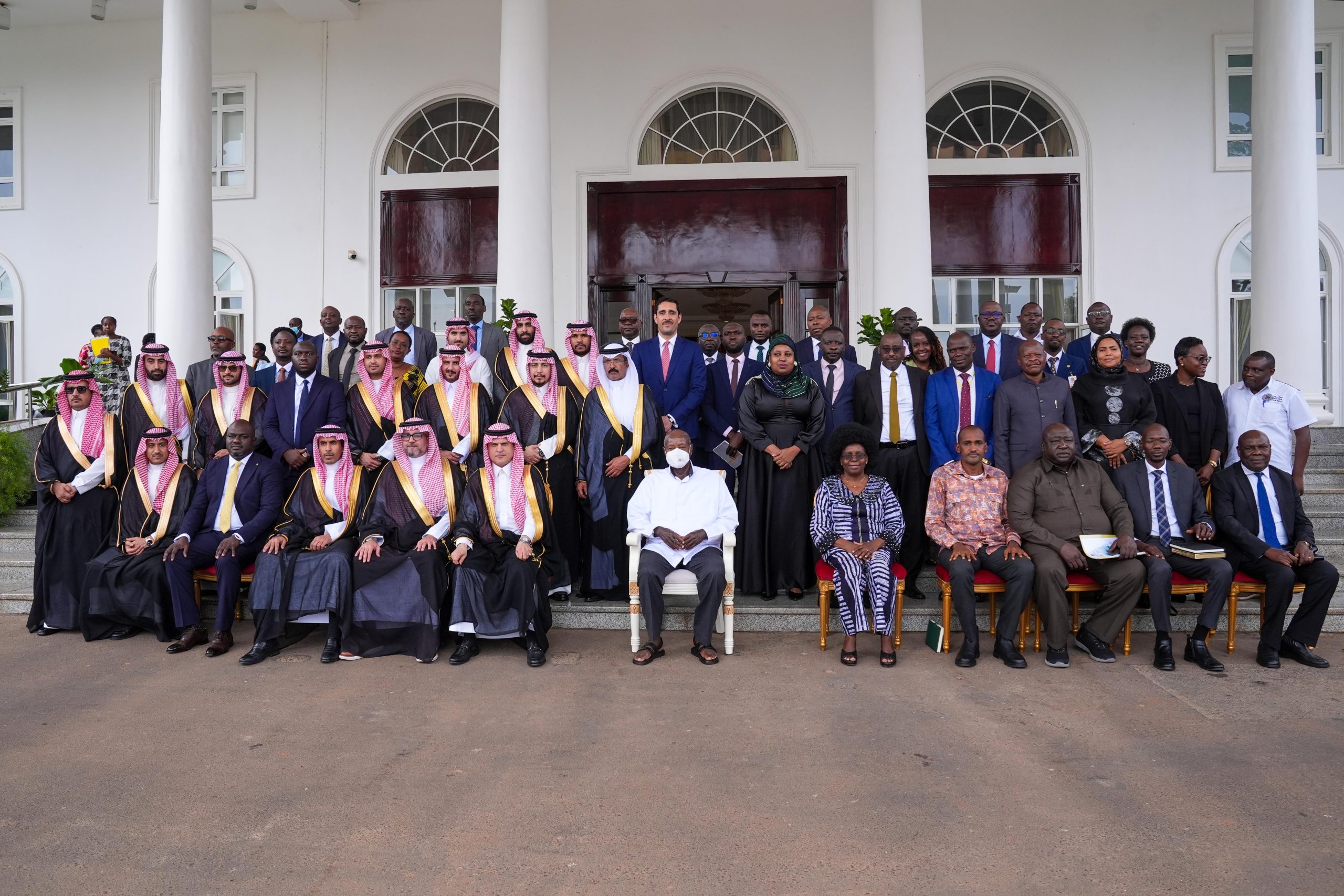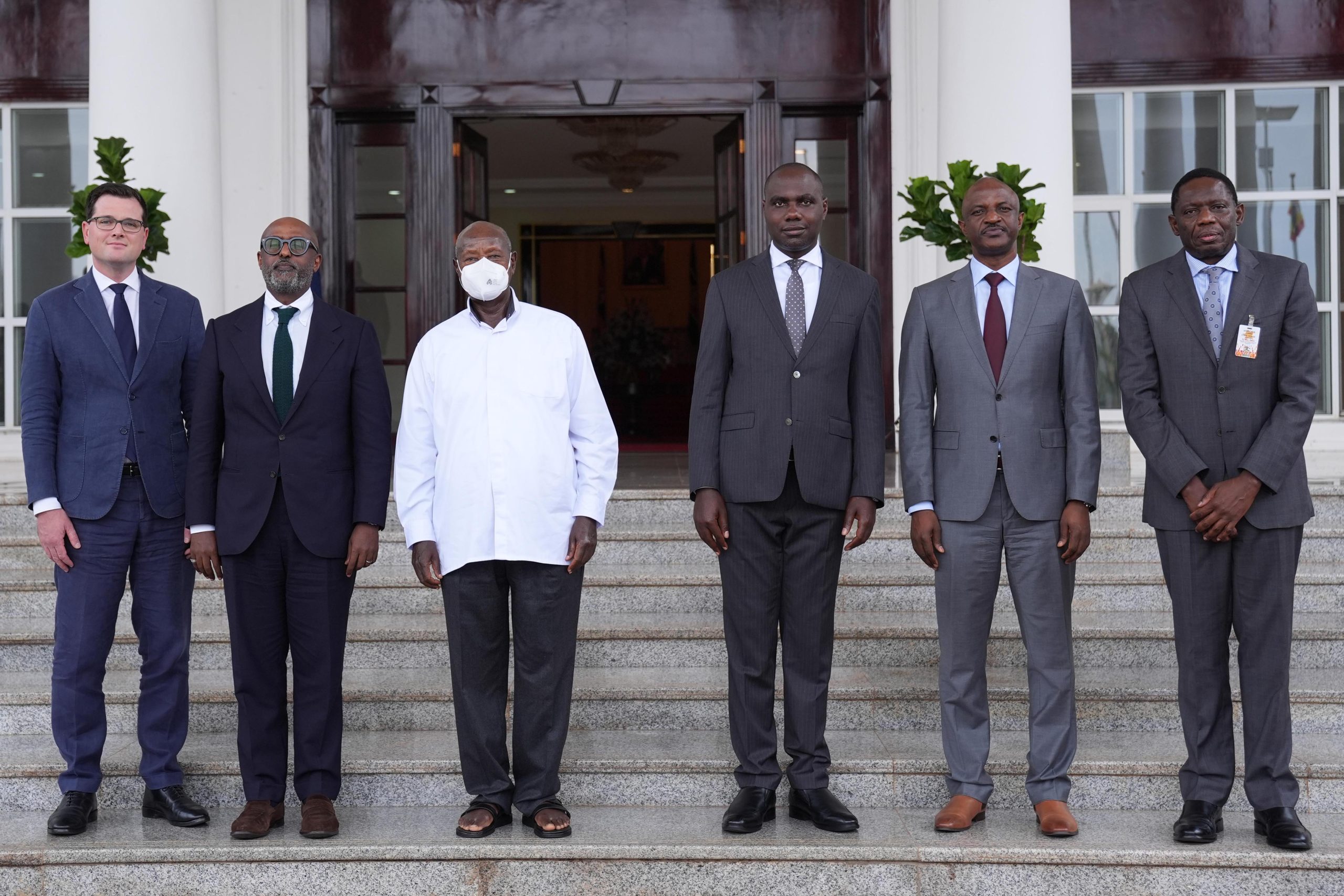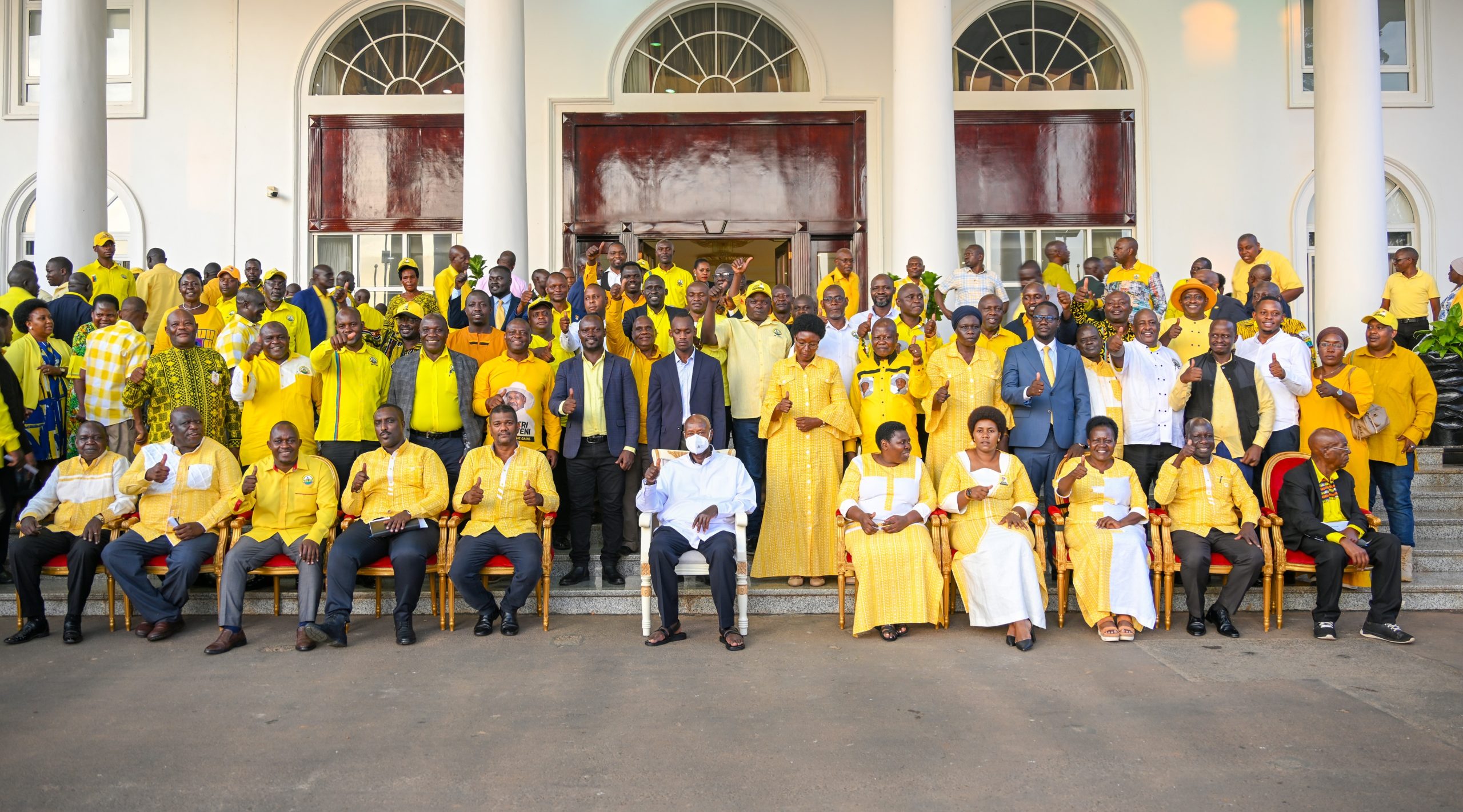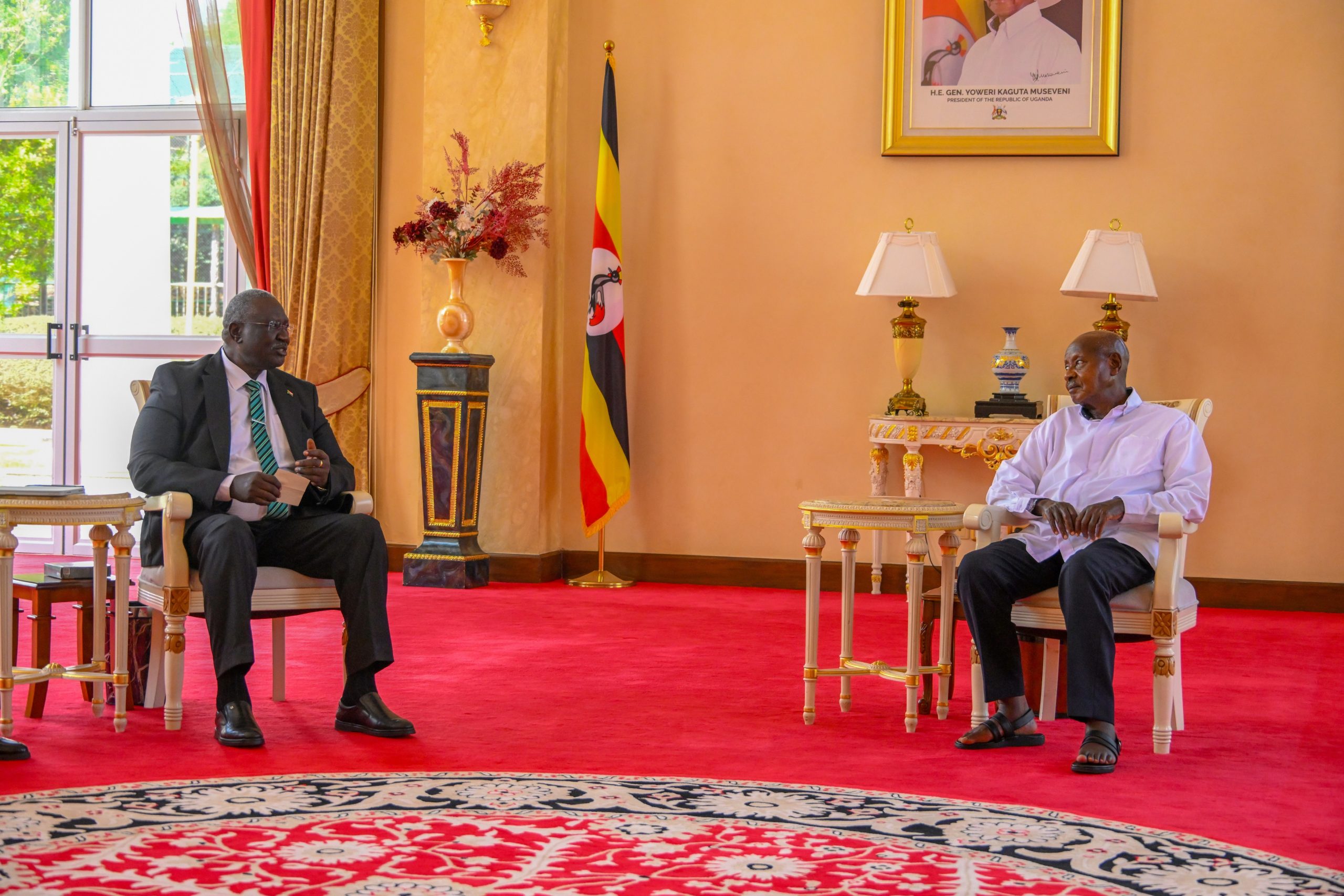The Nebbi Catholic Diocese was tasked to lead the Uganda Martyrs Day celebrations in 2024, slated for June 3rd, with a required budget of Shs1.3 billion.
This marks the second time Nebbi Diocese will lead the prayers in Namugongo, following their previous leadership in 2007.
The annual event pays homage to the 22 Catholic and 23 Anglican martyrs, who were executed for their faith on the orders of Kabaka Mwanga of Buganda Kingdom between 1885 and 1887.
Rt. Rev. Raphael Wokorach, Archbishop-elect of the Gulu Archdiocese and Apostolic Bishop of Nebbi Diocese led the religious delegation to meet President Museveni, where they were introduced by Hon. Dr. Joyce Moriku Kaducu, the State Minister for Education and Sports in charge of Primary Education at State House-Entebbe.
Expressing gratitude, the Rt. Rev. Wokorach thanked the President for his wise leadership, which has ensured peace and freedom of worship in the country.
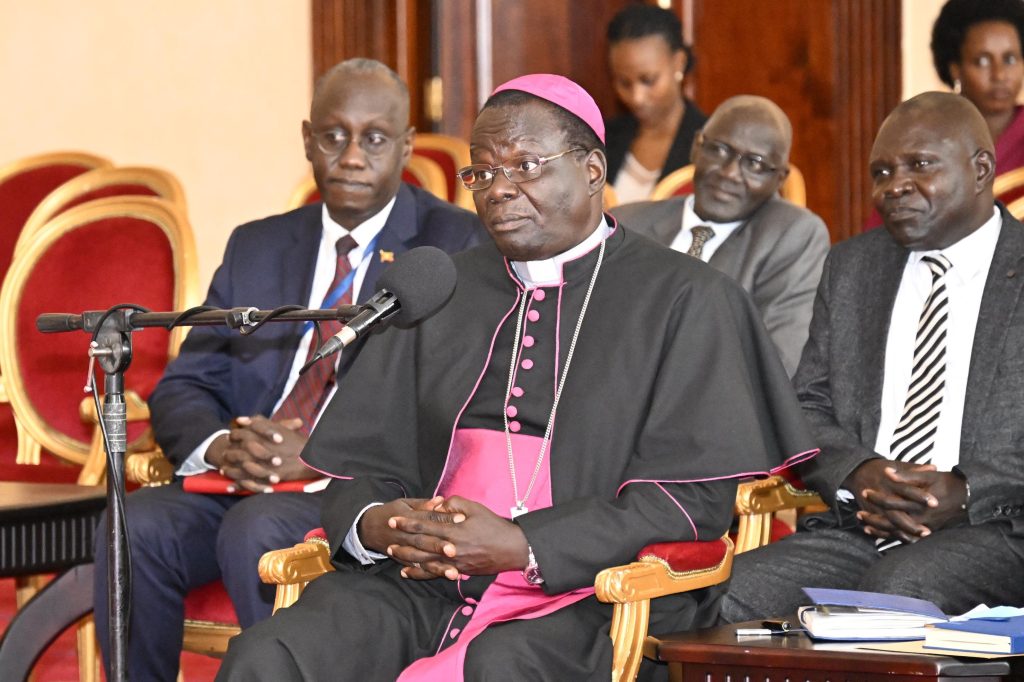
He emphasised the significance of this year’s celebrations, coinciding with the diamond jubilee since the canonization of the 22 Uganda martyrs, saints revered by the Church.
The Rt. Rev. Wokorach also highlighted the challenges faced in organising such an event, stressing the need for financial support to ensure its success.
He acknowledged the efforts made by the diocese in raising funds but appealed for additional assistance to meet the Shs1.3 billion budget, a request which was granted by the President.
“We made a budget and engaged our people to raise the money to make sure the preparations are smooth. Up to now, we have raised Shs 500 million for additional preparatory needs, but the budget goes up to Shs1.3 billion. That is where we have expressed our desire to ask for your support to ensure these celebrations are held at a level that is respected internationally,” remarked the Archbishop.
Furthermore, Rt. Rev. Wokorach shared his vision for the diocese, focusing on sustainable agricultural practices to improve livelihoods in the region. He emphasised the importance of providing modern agricultural equipment, such as tractors, to enhance productivity in farming communities.

“The biggest challenge is that our people have been using hoes to dig. My request is that if we could have six tractors in the six granaries that we have in the diocese, we can share the tractor to have a bigger space prepared for planting and to take care of the area and the locals as well,” stated the Archbishop.
On his part, President Museveni congratulated the Rt. Rev. Wokorach upon being elected as the Archbishop of Gulu Archdiocese. He wished him well in his tenure.
Rt. Rev. Wokorach, who was appointed the new Archbishop of Gulu Archdiocese on March 22, 2024, replaced Rt. Rev. Dr. John Baptist Odama who retired. He is set to be installed as Archbishop on July 12, 2024.
Acknowledging the importance of the occasion, the President assured the delegation of the government’s commitment to supporting the celebrations and also promised to preside over the celebrations in person.
He commended the Archbishop’s vision for the diocese, emphasising the need for sustainable agricultural practices to improve livelihoods in the region.
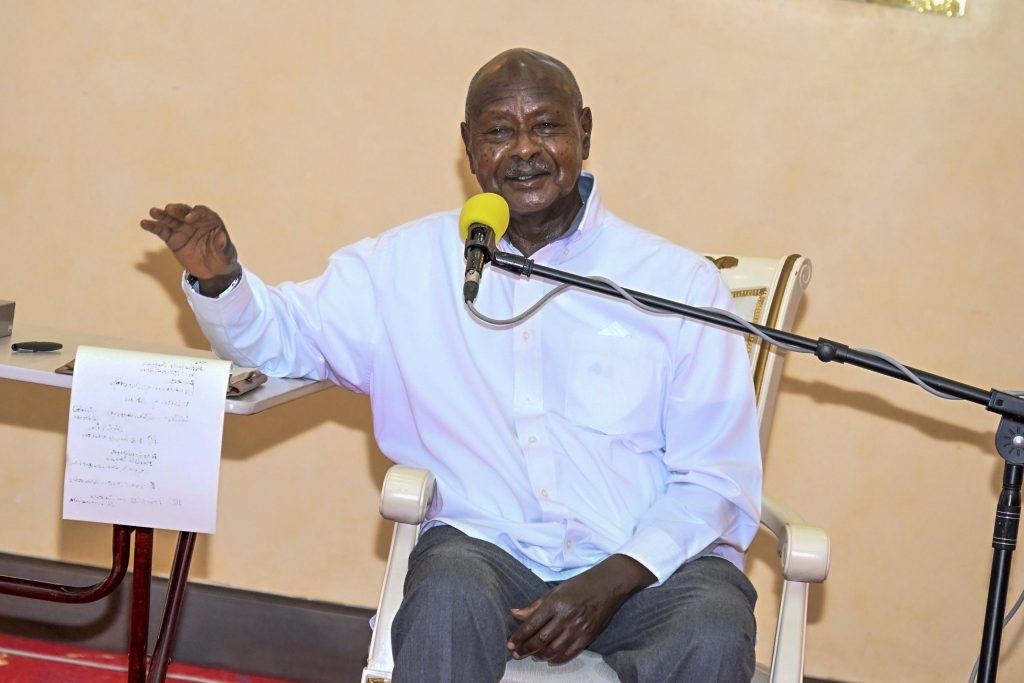
President Museveni also provided valuable insights into agricultural practices, specifically addressing the issue of extensive agriculture in the West Nile region.
He advised the community to transition to intensive agriculture, emphasising the importance of maximising productivity on limited land.
“The confusion among the leaders is that they do not listen to our advice which we put in our manifesto of 1996. We said, first of all, stop working for your stomach. In our National Resistance Movement (NRM) manifesto of 1996, we said there is a difference between intensive agriculture and extensive agriculture. Intensive agriculture means using a small area in a certain way to gain good income. Extensive agriculture is when you use a big piece of land, so even if you get little money per acre, because of the scale, you get enough money,” he said.
“The leaders are busy with other things and yet they have to be talking to the people to solve their problems. We have been speaking about this issue for a long time now, we talked about the 4 acres model because at that time we assumed people had four acres and said that in one acre put coffee, another acre fruits, the other one should be for zero grazing, and then the other you put cassava which for the stomach and in the backyard put hens for eggs or piggery and then in the lowlands near the water, you can do fish farming. This advice is in writing, my advice is that please tell your congregation the issue of the two modes of agriculture and that it should be intensive farming as opposed to extensive farming.”
Furthermore, President Museveni also promised to provide six tractors to enhance agricultural productivity and pledged to address infrastructure challenges, such as the construction of the Nebbi-Goli road.

“We had our plans, but we got diverted by the problems we had, including locusts, floods, and COVID. However, it’s good that we survived, and that’s why we had to hold on to many projects,” reassured President Museveni.
The meeting also saw the participation of various organising committee members, including Rev. Fr. Denis Ocanda, Chairperson of the Liturgical Committee; Rev. Fr. Kennedy Onoba, Member of the Organizing Committee; Rev. Fr. Stephen Oribdhogu, the Vice Chancellor of Nebbi Catholic Diocese; Ms. Catherine Okumu Mavenjina, Chairperson of the Central Organizing Committee; Mr. Gabriel Okumu, Chairperson of the Transport Committee; Mr. Phillip Odida, Chairperson of the Protocol Committee; Mr. Onyai Henry, Chairperson of the Accommodation Committee; Mr. Maurice Opar Manano, Treasurer of the Martyrs Day celebrations; Mr. Fred Omach Jachan, Member of the Finance Committee; Ms. Hellen Acikane Odongtho, Member of the Finance Committee; Mrs. Hellen Ocwechi Ocaya, Member of the Finance Committee; Ms. Grace Fuacan, Member of the Finance Committee; and Mr. Willy Owachi, Secretary of the Finance Committee.

